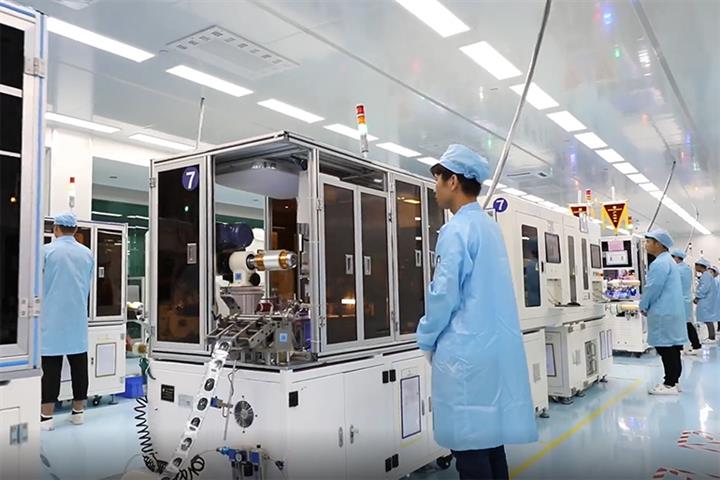 China’s Lingyi Itech Rises After Top iPhone Supplier Gets Nod to Issue HK Shares
China’s Lingyi Itech Rises After Top iPhone Supplier Gets Nod to Issue HK Shares(Yicai Global) Sept. 23 -- The stock price of China’s Lingyi Itech gained after the leading iPhone supplier said it had won approval from Chinese mainland regulators for a secondary share offering in Hong Kong.
After climbing as much as almost 3 percent in the afternoon trading session, Lingyi Itech [SHE: 002600] closed 0.7 percent up at CNY6.90 (USD1.10). The wider Shenzhen market added 0.8 percent.
Lingyi Itech can issue up to 2 billion shares in the Hong Kong market, the Guangdong province-based company said in a statement this afternoon, citing a written reply from the China Securities Regulatory Commission earlier today. The CSRC’s approval is valid for 12 months, it added.
Lingyi Itech announced the secondary listing plan in May and submitted its first prospectus to the HKEX in July, with no issuance details revealed. The firm also did not reveal the fundraiser’s size in today’s announcement.
According to regulations, the proposed listing is still subject to approval from Hong Kong Exchanges and Clearing, which runs the Hong Kong bourse, and local regulators.
The money raised in the flotation will be largely used to expand capacity of consumer electronics and new energy vehicle-related products, enhance ability of research and development and repay debts, per the prospectus.
Lingyi Itech provides various services, including phone assembly, precision device processing and magnetic material production. It suffered a sharp decline in first-half earnings due to the global chip shortage and pandemic overseas. As orders fell, net profit declined 37 percent to CNY396 million (USD61.4 million) from a year ago, according to figures the firm disclosed earlier.
Its poor first-half performance has led to a more than 40 percent year-to-date decline in the company’s share price.
To cut its dependency on the mobile phone sector, Lingyi Itech is trying to expand into parts for new energy vehicles. But income from the new business accounted for just 0.8 percent of revenue in the period, with nearly 96 percent still coming from consumer electronics, per its first-half results.
Editor: Peter Thomas